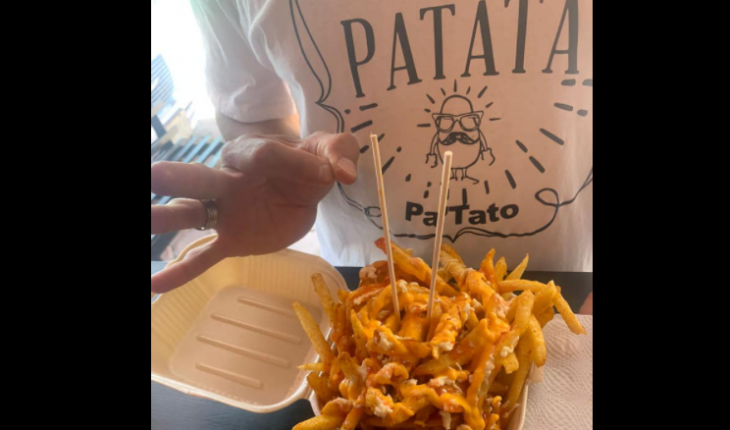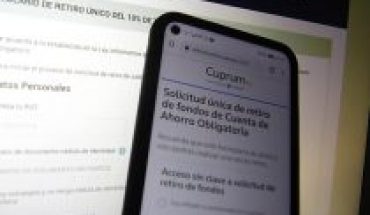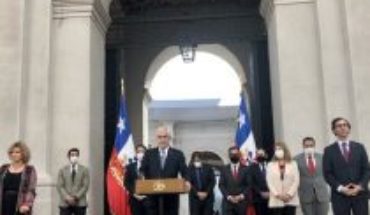“I wouldn’t have survived without my wife Erika,” says Cristian Maya, 42, for within nine months the COVID-19 pandemic took away everything they had built together.
In 2012 she was re-founded with Erika, a college friend and ex-girlfriend of one of her friends. By that time she had already separated from her partner and had a child, while Christian had ended a multi-year relationship.
Quickly their friendship accompanied by labor responsibilities became love for what they both moved to Tecámac, in the State of Mexico, where Erika lived. Cristian left his home in the Colony Clavería, in Azcapotzalco.
Read: “The Pandemic Taught Me to Reinvent Myself”: Chef Emmanuel Zúñiga
Both are certified trainers and were dedicated to providing courses – mainly drafting – to companies, however, when Cristian moved to the State of Mexico the situation became complicated because he was removed from the place where he taught his activities. After much thought they decided to start and have their own company. They would be their own bosses and organize themselves as they wished.
Although Erika was very excited and determined to do so, Cristian hesitated.
“I’ve been afraid all my life for that kind of business, ‘no, how do you think,'” he shares.
“I have never had dreams of greatness in that regard and my wife being a career administrator and UNAM she wants to be an entrepreneur and I don’t know how much more, I saw it as cool dreams. The only thing that flirted with me about putting the training company with her is that, of course, the courses can be charged more expensive than if you’re one person, so, ‘do it, it was to earn more’.”
At that time, he says, he earned about 250 pesos an hour, but if he put his company in, he could easily double the profit.
In 2014 they not only opened the company, but became a child’s parents.
At first, remember, it wasn’t easy, but they gradually found clients asking for significant amounts of training courses. They did not stop and in the house the fruits of the good streak were visible.
Three cars, all the furniture imaginable, brincoline and play houses for your children… such was the amount of things they owned that they had to buy folding cellars that they installed in the garden to put their belongings in. There was nothing else in the house.
They were doing so well that they even advanced three, four, six months’ rent to their landlady.
Cristian explains that in all that time they decided not to invest in a land or house because their plan of life was to migrate to Canada and they preferred to invest in some entrepreneurship there.
However, from the early days of 2020 the nightmare began.
“We were all mother, and all of a sudden, ‘did you see about the epidemic?, yes, but it’s super far away,'” Cristian said with his wife Erika.
“We saw him away and said he wasn’t going to touch us, maybe a little out of ignorance. We even took time to take security measures among the family because we didn’t think it existed (the virus).”
With confinement all training was canceled. They tried to offer them in webinars, but it didn’t work. Work’s over.
Between June and December 2020 they had no income, they lived exclusively on their savings. They no longer advanced months of rent, and the krav maga – self-defense – classes the whole family took were canceled. It was no longer possible to afford such activities.
In December, their landlady warned them that she would most likely sell the property, so she anticipated that they would have to find a new place to live. It happened January and February and given the uncertainty of not knowing what to do, they decided to start looking for where to move.
“What money were we going to change with, but there was no other money and we started looking for a house,” he says
The search took them to Pachuca, but the rents were very high. They tried to stay in Tecamac but it didn’t catch up with them either and where they could afford them were very dangerous areas. In March they decided he was moving to Teotihuacán. And again, what money were they going to pay for the move?
Then they made the decision to sell two of their three cars, they only took the family van that would serve them to carry their belongings. Cristian no longer remembers how many trips they made, but with what they got for the sale of the cars they were able to pay for the gas and the pantry for a month.
Coincidentally on the first day they took things to their new home they realized that in a commercial premises just below her she had vacated. “What if we rented it and set up a business?” they wondered, however, they came back to the beginning: with what money to rent and condition the space if the first rent in their new home was paid because they borrowed money from their relatives.
“Erika said ‘you have to put something in’, and then we borrowed again – with all the pain of my heart – from my family. I asked more money for those living in Canada, the United States, from a friend who lives in Stockholm… I was telling them it was to start a business,” Cristian says.
After looking for what business was around and being clear that their proposal should be selling food, they decided they would put a French potato place and snever. They estimated that in order to get their business going, they needed about 120,000 pesos. It was impossible.
“That’s where we started bartering. One of the cottages (games) we exchanged it for an oven and a grill. Right now we have the basics and my family continues to support us with money. We saw we were missing a refrigerator and I talked to my guys in Vegas if they supported us,” she adds.
So, last April they opened their potato place.
Since his house is very close to the center of Teotihuacán, Cristian had to go out to deliver flyers and promote his business for people to visit.
After being a professional who taught training courses he had to turn his life around to support his family, as the health crisis over COVID-19 not only took away his work, but ended his savings and with the dream of migrating to start a new life outside Mexico.
“How am I going to be flying outside my house and in the center of Teotihuacán which is a village, don’t stain,” he repeated himself before opening his business. ‘How that gentleman was going to sell chips’ and that was one of the hardest parts for me, adapting.
“I am a stone, I am plaster, I find it difficult to change, I tend to comfort, I am a man of customs, I have it very ingrained and that prevents you from changing, it makes you incredulous… I wouldn’t have survived if Erika wasn’t my wife,” she insists.
Six weeks after the opening of his place he was baptized “the potato pa’tato” says there hasn’t been a day they haven’t sold. A few weeks ago they wanted to take a Tuesday as a break and people came asking for potatoes and snundering.
“The idea is to keep the business going and even if you take off the courses again, stick with it, don’t throw all the eggs in one basket. Adaptability is an invaluable skill these days,” he says.
What we do at Animal Politics requires professional journalists, teamwork, dialogue with readers and something very important: independence. You can help us keep going. Be part of the team.
Subscribe to Political Animal, receive benefits and support free journalism #YoSoyAnimal.





